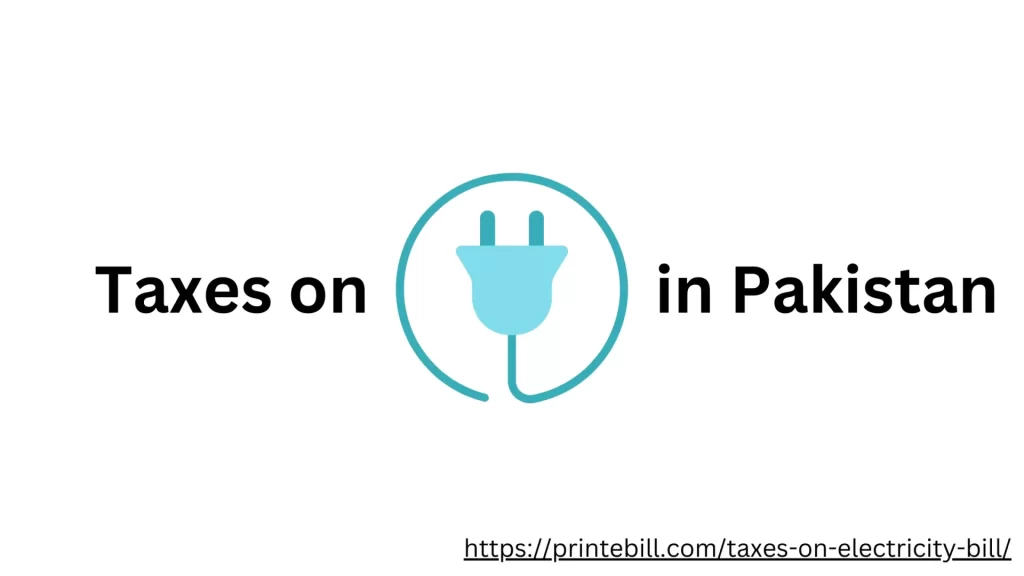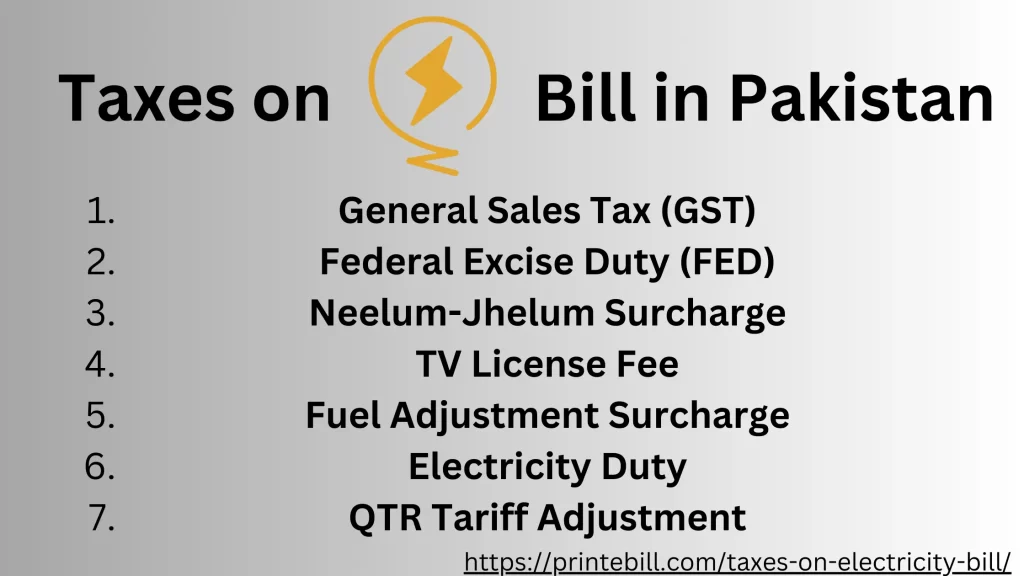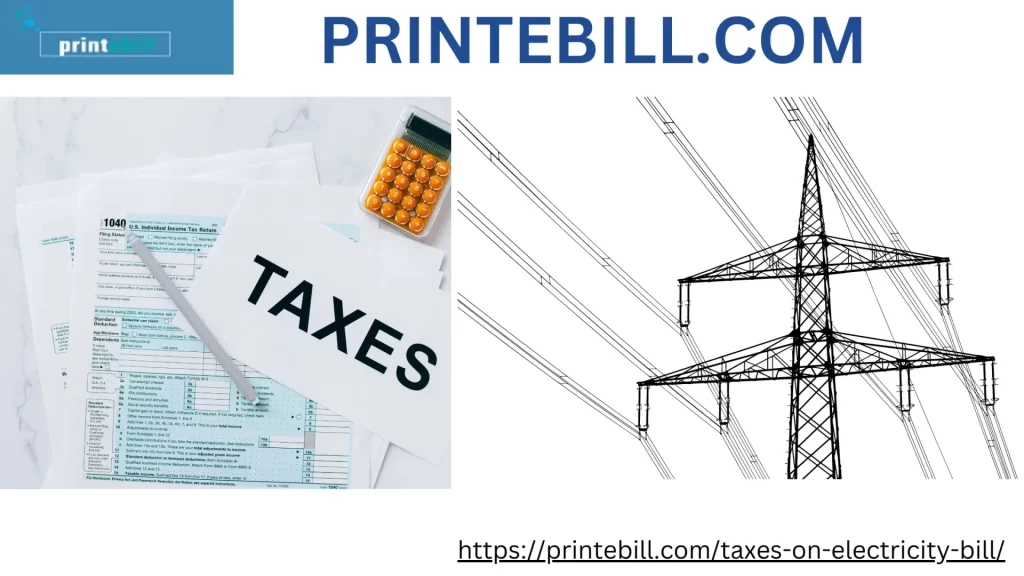Taxes on Electricity Bill
Electricity bills in Pakistan include various taxes and charges that can add up to a significant portion of the total bill amount. Here are the different taxes on electricity bill in Pakistan that you might see on an electricity bill in Pakistan:
Table of Contents
Taxes on Electricity Bill in Pakistan:
Here are the taxes on electricity bills that are included in your bill in Pakistan
Sales Tax:
This is a tax charged by the Federal Government of Pakistan on the supply of goods and services. The sales tax rate for electricity bills in Pakistan is currently set at 17%.
General Sales Tax (GST):
GST is a provincial tax levied on the supply of goods and services in Pakistan. The GST rate for electricity bills can vary from province to province, but it is typically between 16% and 18%.
Neelum Jhelum Surcharge:
This is a surcharge that was introduced in 2013 to finance the construction of the Neelum-Jhelum hydropower project. The surcharge is currently set at 10% of the electricity bill amount. This tax is now ended as the project of Neelum Jehlum has been completed.
Fuel Adjustment Charges:
Fuel adjustment charges are a variable component of the electricity bill that reflects the cost of generating electricity. These charges can go up or down based on the cost of fuel used to generate electricity. Fuel adjustment charges can make up a significant portion of the bill amount.
FC Surcharge:
Fuel Cost Adjustment Surcharge is an additional charge imposed on electricity bills to account for fluctuations in fuel prices. As the name suggests, this surcharge allows distribution companies to adjust electricity tariffs based on changes in the cost of fuel used for power generation.

Electricity Duty:
Electricity Duty, also known as Electricity Tax or Electricity Levy, is a form of tax or duty imposed by the government on the consumption or generation of electricity. It is a significant component of electricity bills and is levied to generate revenue for the government and support various developmental initiatives related to the energy sector.
The Electricity Duty is usually charged as a percentage of the electricity consumption or generation cost and varies depending on the government policies. The duty may be collected from both residential and commercial consumers, and the rates may differ for different consumer categories.
TV Fee:
The Pakistan Electronic Media Regulatory Authority (PEMRA) charges a fee for every television set in the country. The fee is collected through electricity bills, and the current rate is Rs. 35 per TV set.

Quarterly Tariff Adjustment (QTA):
Quarterly Tariff Adjustment (QTA) is a mechanism used to adjust electricity tariffs on a quarterly basis. This adjustment is made to account for changes in various factors that can influence the cost of electricity generation and distribution. QTA allows the regulatory authorities or electricity providers to align electricity prices with the current economic and operational conditions.
Tariff Differential Subsidy (TDS):
TDS is a subsidy provided by the government of Pakistan to help low-income households pay their electricity bills. The subsidy is currently set at Rs. 2 per unit of electricity consumed by eligible households.

FAQ:
What is the withholding tax on electric bills?
The withholding tax on electric bills in Pakistan is 7.5% for domestic consumers. This means that 7.5% of the billed amount is withheld by the electricity distribution company and remitted to the government as a withholding tax.
What is the current electricity tariff in Punjab?
The electricity tariff has been revised with changes in charges for different load categories. For consumers with a load above 7 KW and up to 20 KW, the rate has increased from Rs. 70 to Rs. 100 per KW.
What is the electricity bill for 400 units in Pakistan?
Customers with low AC and appliance usage, consuming 400 units or more of electricity, will receive a minimum bill of Rs. 12,300. Those consuming 500 power units or above can expect a significant increase in their electricity bills, with amounts potentially reaching up to Rs. 16,000.
Conclusion:
It’s important to note that these taxes and charges can change over time, and the rates and policies can vary from province to province. These are some of the taxes on electricity bills in Pakistan and their rates may differ. To reduce your electricity bill, you can take steps to conserve energy and switch to more energy-efficient appliances. Additionally, you may be able to take advantage of government subsidies or incentives for using renewable energy sources, such as solar panels.
